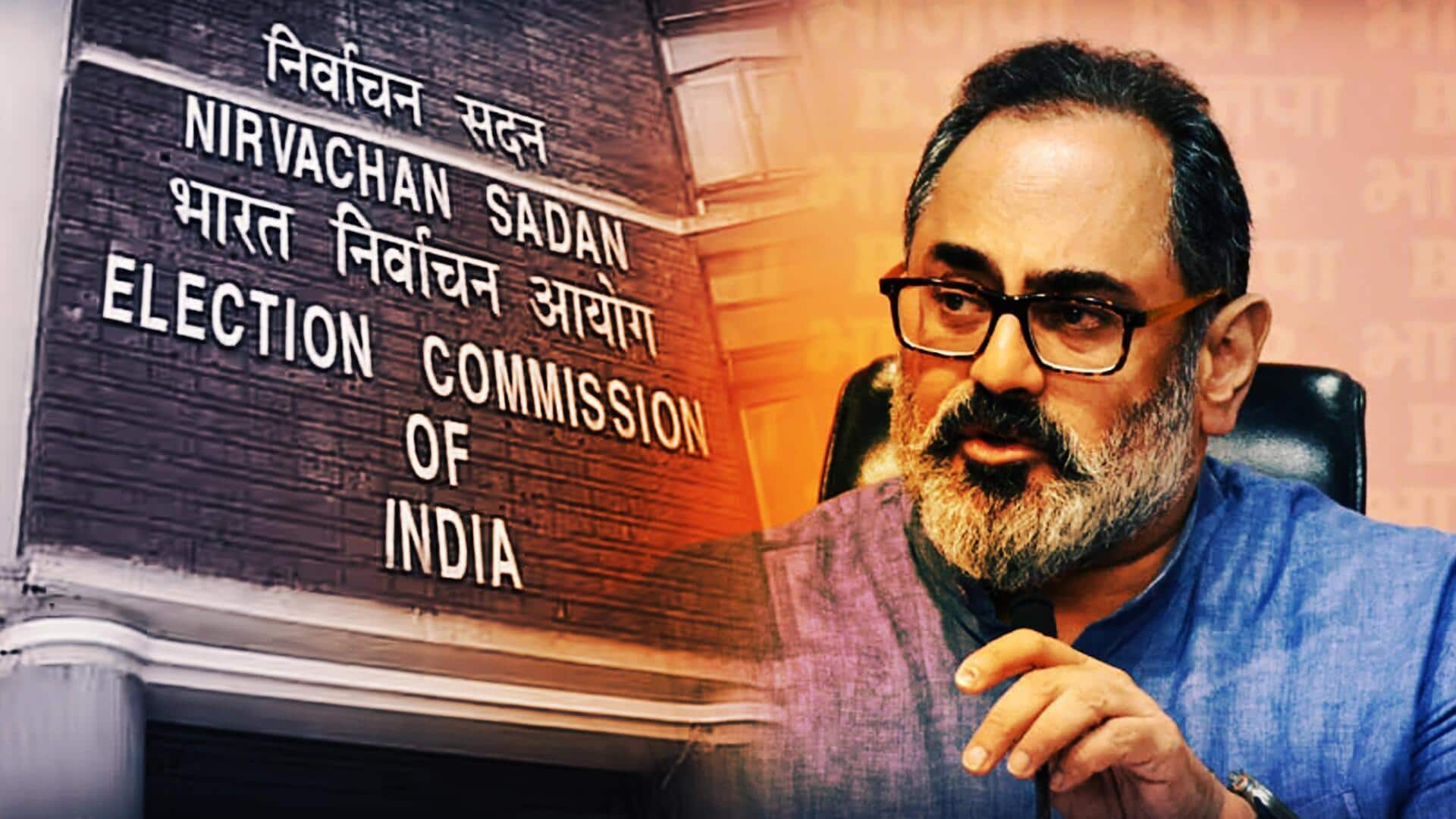
After Congress's complaint, ECI to verify Union minister's affidavit
What's the story
The Election Commission of India directed the Central Board of Direct Taxes to scrutinize the financial details provided by Union Minister Rajeev Chandrasekhar in his election affidavit.
This action follows a complaint by the Congress, alleging misrepresentation of financial status by the Bharatiya Janata Party's Thiruvananthapuram candidate—Chandrasekhar.
As per Section 125 A of the Representation of People's Act 1951, any discrepancy or misrepresentation in an affidavit constitutes a legal offense.
Asset breakdown
Details of Chandrasekhar's declared assets
Chandrasekhar's financial declaration for the Lok Sabha elections, submitted on April 5, lists assets exceeding ₹28 crore.
His movable assets, totaling ₹13,69,18,637, include cash reserves, bank deposits and investments in bonds, debentures, shares and mutual funds.
His spouse's assets are valued at ₹12,47,00,408.
Among his possessions is a vintage 1942 model Red Indian Scout motorcycle registered in Karnataka and purchased in 1994 for ₹10,000.
Property and liabilities
₹680 income in financial year 2021-22
Chandrasekhar owns jewelry and other valuables worth over ₹3.25 crore.
His immovable assets include self-acquired property purchased for ₹5,26,42,640 with an estimated current market value of ₹14,40,00,000.
He has declared disputed liabilities of ₹19,41,92,894 while his spouse's disputed liabilities stand at ₹1,63,43,972.
These liabilities encompass loans from banks and other financial institutions.
The union minister's total income shown in the 2022-23 Income Tax return is ₹5,59,200, while it was ₹680 for the year 2021-22.
Investigation underway
Chandrasekhar denies charges
The opposition had also alleged that the minister did not disclose other owned real estate, including property in Bengaluru.
It also claimed Chandrasekhar neglected to disclose his connection to a holding company—Jupiter Capital—despite its website listing him as its "founder."
The law stipulates that withholding information in nomination papers or affidavits can lead to imprisonment for up to six months, a monetary fine, or both.
Chandrasekhar has denied all charges saying, "All my disclosures are compliant with the law."